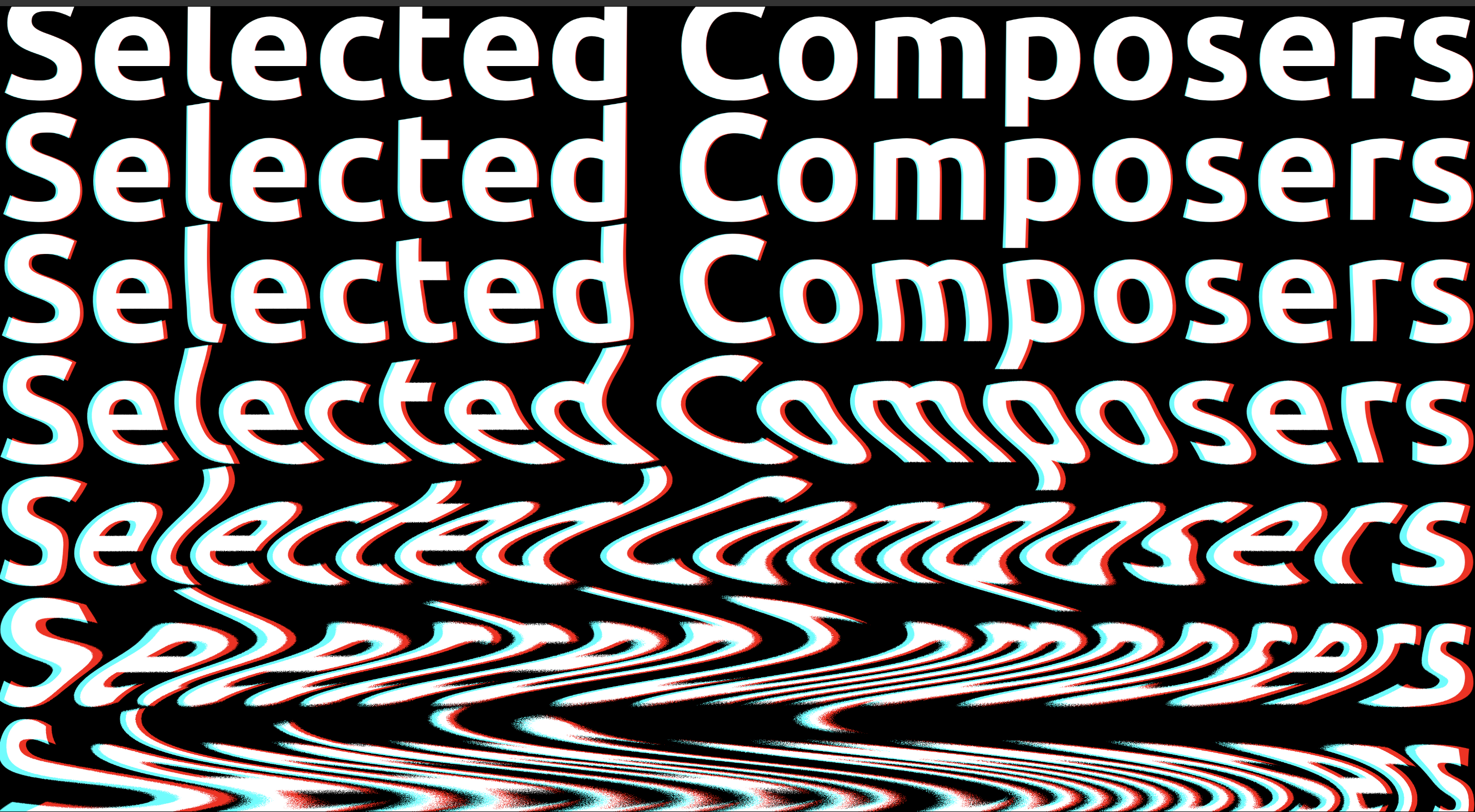

Call For Score & Proposal - West Asian Composers
Congratulations to all selected composers!
List of the selected works:

This project uses the category of West Asia as an alternative to that of the Middle East—a geographic category whose genealogy in the post-imperial politics of the 20th century is now widely recognized. The category of West Asia is helpful because it moves away from the exceptionalism that is inherent in the notion of “the Middle East.” West Asia highlights also the need to better understand the connections, ties, and circulations between this context and other parts of Asia. From the perspective of influential opinion makers in the region, the use of the category “West Asia” corrects the Western-centric view of geography and replaces it with a vision that has more traction in the region itself (Marsden, M., & Mostowlansky, T., 2019).
This project is thus a political project in its wider sense. Its goal is firstly to support the artistic community and specifically the work of composers of colour (and those who identify as women and LGBTQI+); secondly to recognize the discriminatory distinction between the east/west that has propagated throughout the history by the western cosmology, also to recognize the negative impacts of the use of the term Middle East in controlling power-relations in the region; and thirdly, to invite artists and composers to deterritorialize the realm of the new music from the current dominant narratives and aesthetics (the continuum of the western classical music).
I borrow the term “deterritorialization” from Deleuze and Guattari, two of the most influential post-structuralist philosophers of the 20th century. Deterritorialization for them signifies a process of constant movement that avoids fixed states or the stasis of being and the sedimentation of identity. Claire Colebrook explains:
"The idea of deterritorialization, which runs throughout Deleuze and Guattari’s work, is directly related to the thought of the machine. Because a machine has no subjectivity or organizing center it is nothing more than the connections and productions it makes; it is what it does. It therefore has no home or ground; it is a constant process of deterritorialization, or becoming other than itself." (2002, p. 56)
I therefore, see an immense possibility of deterritorialization work in terms of soundscapes and musical events in Contemporary Creative Music, There is a vast possibility of playing with phenomenology of sounds such as sound sources, materiality, social and cultural aspects of sounds and shifting modes of listening.
Contemporary new music aims to liberate formalities and standards in music making. Our aim is to produce a program that contributes to conditions of recognition and representation in the realm of new music and to raise awareness of West Asian cultures and music and, by extension, to explore issues and ideas shaping the identities and experiences of people from the region. When we issued our call, we were invited artists to deterritorialize from the dominant narratives in the new music practice and to open up to new possibilities for music-making. We wanted to hear from artists who bring diverse perspectives on sociality, subjectivity and aesthetics through their music, and are interested in pieces that play with the phenomenology of sounds including their sources, materials, and social/cultural aspects. We invite the participating artists to bring their cultural heritage, voices, choices and personal nuances into this project, while developing work that is challenging, experimental and engaged in critical discussions offering new perspectives on contemporary West Asian realities.
The political significance of geography is visible in today’s world in which geopolitical shifts are leading to new types of political, economic, religious, and cultural dynamics. Novelty, however, also calls upon actors involved to legitimize change by recalling past ties and connections (Marsden, M., & Mostowlansky, T., 2019). Now is a unique and critical juncture to explore and test the analytical value of the category of West Asia with the aim of contributing both to the study of transregional dynamics, as well as understanding the connections and networks that connect different regions of Asia to one another and beyond.
Being aware of my academic background in western music traditions, electroacoustic music, new technologies and interface design, I am committed to questioning my training-informed cultural biases towards dichotomous assumptions such as west/east, known/knower. This commitment comes from the desire to untether from the imperial knowledge and to re-code the ethical and epistemological grounding of these assumptions in order to start from a new point where I can bring awareness to artistic research and contribute to conditions of change in modern humanist musicking. I seek to understand the often unseen role that material discursive practices and disciplines do in the work, by ordering human interaction. While these processes are present at the level of decision-making in the process of music-making, in effect they establish hierarchies of knowledge, gendered classifications, or dichotomies.
My aim is to invite my audience to rethink disciplinary boundaries and open their minds to different ways through which knowledge could be produced. Those shifting boundaries have become so intimately connected to the ways that people experience their lives that they no longer experience limitations of systems of regulation and disciplines but embrace them as the very structure of normal and natural human behaviour. I believe this project, using a critical approach to musicking would be a valuable contribution to new music in the broadest sense.
View Site